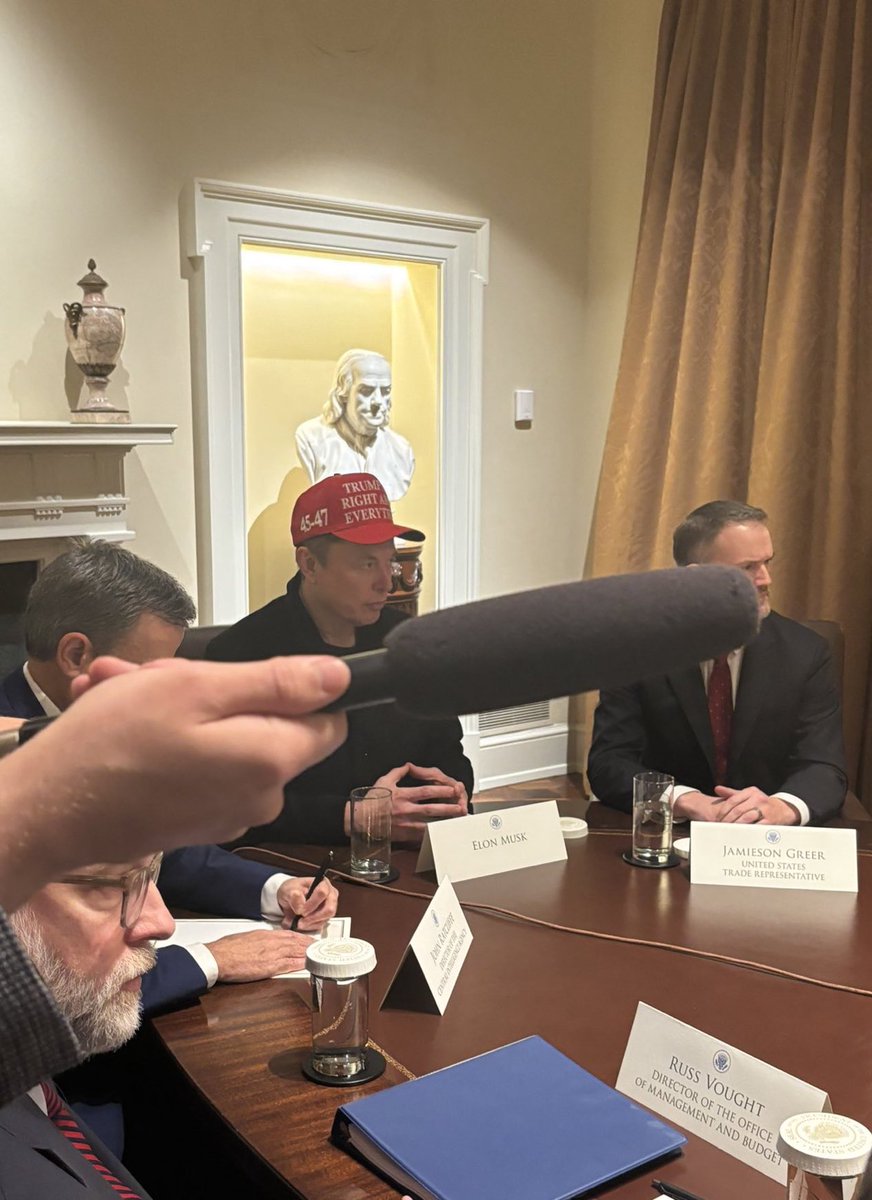Elon Musk’s Unconventional Approach at High-Level Government Meetings
The recent Cabinet Meeting drew significant attention when Elon Musk, the internationally renowned entrepreneur, attended without a formal title on his name card. The imagery of Musk’s unorthodox move circulated widely on social media, prompting discussions across various platforms.
The Significance of Musk’s Nameless Approach
In a milieu where titles and designations often symbolize authority and respect, Musk’s decision to go title-less made a bold statement. This act reflects the Silicon Valley disruptor’s continuous challenge to conventional norms. Such a gesture may signal his preference for prioritizing substantive ideas over hierarchical status—a philosophy shared by many in the tech industry where innovation thrives over tradition.
Speculations and Interpretations
The absence of a title could indicate several things in the context of international and government interactions. Some speculate that Musk’s decision is strategic, allowing him to avoid being pigeonholed into a specific role or responsibility during high-stakes discussions. Alternatively, it might suggest a desire to engage as an equal participant, encouraging open dialogues without predispositions formed by a title.
Reactions From the British Audience
In the UK, the response has been a mixture of curiosity and admiration. Many citizens see Musk’s actions as refreshing and aligning with modern work cultures where bureaucratic clutter is often seen as a hindrance to progress. The shift towards flat organisational structures in many tech companies resonates with the British public’s growing appetite for streamlined and efficient systems in both private and public sectors.
The Role of Titles in Contemporary Corporate Settings
Titles fulfil various roles, from signifying roles and responsibilities to helping navigate complex organisational hierarchies. However, in contemporary settings, especially within tech startups and innovative firms, the weight of a title is being increasingly questioned. Musk’s example highlights a broader trend across industries to value impact and contribution over rank.
While traditional sectors may still rely heavily on titles due to legacy systems, new-age companies are reshaping the landscape. Titles in such settings are becoming more flexible, often shifting with the changing dynamics of teams and projects.
Potential Implications for Government and Business Collaboration
Musk’s approach might spur a new way of thinking about titles during collaborations between tech innovators and government bodies. By removing hierarchical barriers, discussions could become more open and innovative solutions more accessible. The UK government, actively seeking to engage with tech leaders for its ‘Global Britain’ agenda, might find value in such an approach to elevate dialogues with strategic partners.
In conclusion, while some may view Musk’s appearance without a title as a peculiar choice, it undeniably sparks conversations around tradition versus innovation—a dialogue that is essential as the boundaries between government and technology continue to blur.
